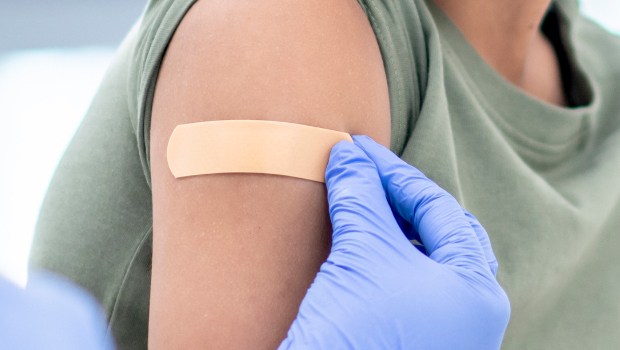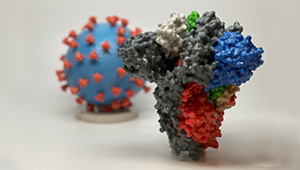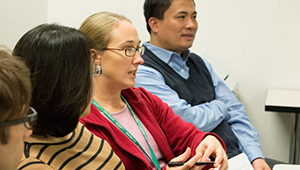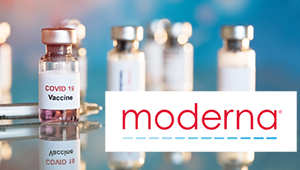Youth under 18 eligible for COVID vaccine trial registry

A registry started by KPWHRI last year has sped up studies needed to protect the world against the novel coronavirus
Seattle-area parents can now add the names of children under age 18 to a registry of people interested in participating in clinical trials for COVID-19 vaccines. Previously only adults 18 and older were eligible for this registry, established in March 2020 by Kaiser Permanente Washington Health Research Institute (KPWHRI).
Researchers in the United States typically study the safety and efficacy of new vaccines, even ones intended for children, in adults first. KPWHRI currently is engaged in COVID-19 vaccine clinical trials in adults, and it is now part of efforts to expand COVID-19 vaccine studies to include teenagers and younger children. Existing trials could change their age criteria for participants, or new trials may be organized specifically for people under 18.
“After the positive results we have seen in COVID vaccines in adults, we can now feel confident to begin what is known as ‘age de-escalation,’ and include people under age 18 in clinical trials of these vaccines,” said Lisa Jackson, MD, MPH, a KPWHRI senior investigator who heads the institute’s Vaccine and Treatment Evaluation Unit. “We never want to give a vaccine to such a vulnerable population until we are sure about its safety in healthy adults.”
The studies may begin by evaluating vaccines in teenagers, gradually moving to elementary school-age children, and finally preschoolers. The vaccine developed by Pfizer and Biontech has already been tested in 16- and 17-year-olds and is approved for use in that age group.
KPWHRI launched its registry last year as a way to identify potential volunteers who could be quickly enrolled as soon as clinical trials were approved and ready to go. Nearly 11,000 people had signed up by the end of January 2021.
Parents and guardians who are interested in being contacted for a COVID-19 vaccine trial that their child could be eligible for should visit the registry information page. After reading the page, the parent or guardian will be directed to a form where they have the option to provide limited information about their child. If contacted about a potential trial of a COVID-19 vaccine in children, there is no obligation to the parent or child. And all participants are free to withdraw from the registry at any time.
To be enrolled in future COVID-19 vaccine clinical trials, children must live in the greater Seattle area and be able to travel with a parent or guardian to the KPWHRI research clinic in downtown Seattle for multiple study visits. They should be in good health or have stable medical conditions. They cannot have certain health conditions that affect the immune system and cannot be taking medications that affect the immune system. Only parents and legal guardians may sign up youth under 18 for the registry.
KPWHRI’s vaccine research team has long-standing expertise in conducting these kinds of trials, including testing other investigational vaccines against “swine” and “bird” flu. For more than a decade, a team at the institute has been part of the National Institutes of Health (NIH) clinical research network that helps develop new and improved vaccines and therapies against infectious diseases, and Dr. Jackson has led more than 60 vaccine clinical trials as part of this and other efforts.
“The NIH vaccine network is essential to the nation’s efforts to stop the suffering caused by COVID-19,” said Dr. Jackson. “We’re honored to be one of the 10 centers that comprise the consortium.”
In March 2020, the Kaiser Permanente Washington vaccine research group launched the world’s first clinical trial to administer a COVID-19 vaccine to a participant. The phase 1 study was testing a vaccine developed by the National Institutes of Health and the biotech company Moderna. Although it was originally limited to participants ages 18 to 55, it soon expanded to include older participants. Dr. Jackson and colleagues published positive findings from the trial last year.
KPWHRI built upon that work to join the phase 3 clinical trial of the NIH-Moderna vaccine, becoming one of about 100 sites, involving 30,000 volunteers. Evidence from that trial provided the basis for the U.S. Food and Drug Administration’s Emergency Use Authorization for the vaccine in December 2020.
While the institute’s vaccine team continues to follow participants in the phase 1 and phase 3 trials of the NIH-Moderna vaccine, it also has enrolled and is following volunteers in another phase 3 clinical trial of a COVID-19 vaccine, made by Janssen Pharmaceutical Companies of Johnson & Johnson, as well as preparing to launch a phase 1 clinical trial for adults for a vaccine developed by the Seattle firm HDT Bio Corp.
For more information about the KPWHRI registry, please visit here: corona.kpwashingtonresearch.org.
To learn about COVID-19 vaccine clinical trials at sites other than KPWHRI in Seattle and around the country, check out the registry maintained by the COVID-19 Prevention Trials Network: coronaviruspreventionnetwork.org.
By Jonathan Rabinovitz
Research

COVID-19 pandemic research at KPWHRI
Having long tracked infectious diseases and tested vaccines, KPWHRI now focuses on the novel coronavirus.
Vaccine Safety

Biostatisticians track COVID-19 vaccine safety
Dr. Jennifer Nelson explains how KP scientists are helping the CDC and FDA keep an eye out for rare adverse events.
News

NIH-Moderna COVID-19 vaccine receives FDA Emergency Use Authorization
The investigational vaccine that KPWHRI’s team first tested shows an efficacy rate of about 94% as research continues.



